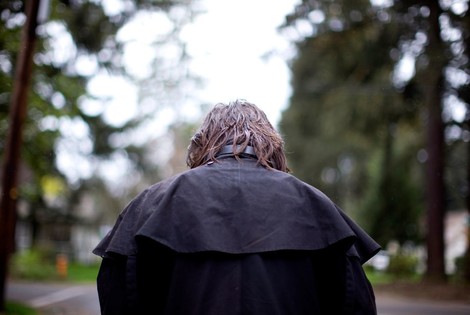Your podcast discovery platform
Curious minds select the most fascinating podcasts from around the world. Discover hand-piqd audio recommendations on your favorite topics.

piqer for: piqd Boom and bust Climate and Environment Global finds Globalization and politics Health and Sanity Technology and society Doing Good Deep Dives
Malia Politzer is the executive editor of piqd.com, and an award-winning long-form journalist based out of Spain. She specializes in reporting on migration, international development, human rights issues and investigative reporting.
Originally from California, she's lived in China, Spain, Mexico and India, and reported from various countries in Africa, Europe and the Middle East. Her primary beats relate to immigration, economics and international development. She has published articles in Huffington Post Highline, The Economist, The Wall Street Journal, Vogue India, Mint, Far Eastern Economic Review, Foreign Policy, Reason Magazine, and the Phoenix New Times. She is also a regular contributor to Devex.
Her Huffington Post Highline series, "The 21st Century Gold Rush" won awards from the National Association of Magazine Editors, Overseas Press Club, and American Society of Newspaper Editors. She's also won multiple awards for feature writing in India and the United States.
Her reporting has been supported by the Pulitzer Center on Crisis Reporting, The Institute For Current World Affairs, and the Global Migration Grant.
Degrees include a BA from Hampshire College and MS from Columbia University Graduate School of Journalism, where was a Stabile Fellow at the Center for Investigative Journalism.
Targeted: A Family And The Quest To Stop The Next School Shooter
As school shootings become more and more common in the United States—and in the absence of gun laws restricting access to firearms—administrators are left to grapple with the dilemma of how to protect students and prevent shootings before they happen.
Increasingly, school districts are resorting to "threat assessment protocols"—systems put into place with the intention of ferreting out troubled students with a proclivity to violence, and getting them help. This articled follows the investigation into one student who was flagged as potentially dangerous, and how that investigation affected his life, and that of his family.
"Sanders" (his middle name, to protect his identity) is an Oregonian teenager who school authorities began investigating as a potential threat after receiving a number of concerned calls. At first glance, he fits a certain profile: A loner, Sanders doesn't have many friends. He often wears a black trench coat, and likes guns and knives.
Sanders' family has another explanation for his antisocial behavior: Sanders, they content, isn't violent—he's on the autism spectrum, which makes it more difficult for him to make friends. Prior to the investigation, he was a pretty well-adapted teenager on the spectrum: He did decently in school, and took part in drama. But the investigation began to take a toll: Sanders knew he was under suspicion, and felt like a target was painted on his back. He became depressed, resentful and angry, and his grades began to drop.
It seemed to Sanders' father that this system risked making a student who wasn’t violent, violent. What if this system created the very thing it was trying to prevent?
A fascinating read about how to keep kids safe in an era when school shootings are becoming commonplace—and the potential unintended consequences of these policies.
